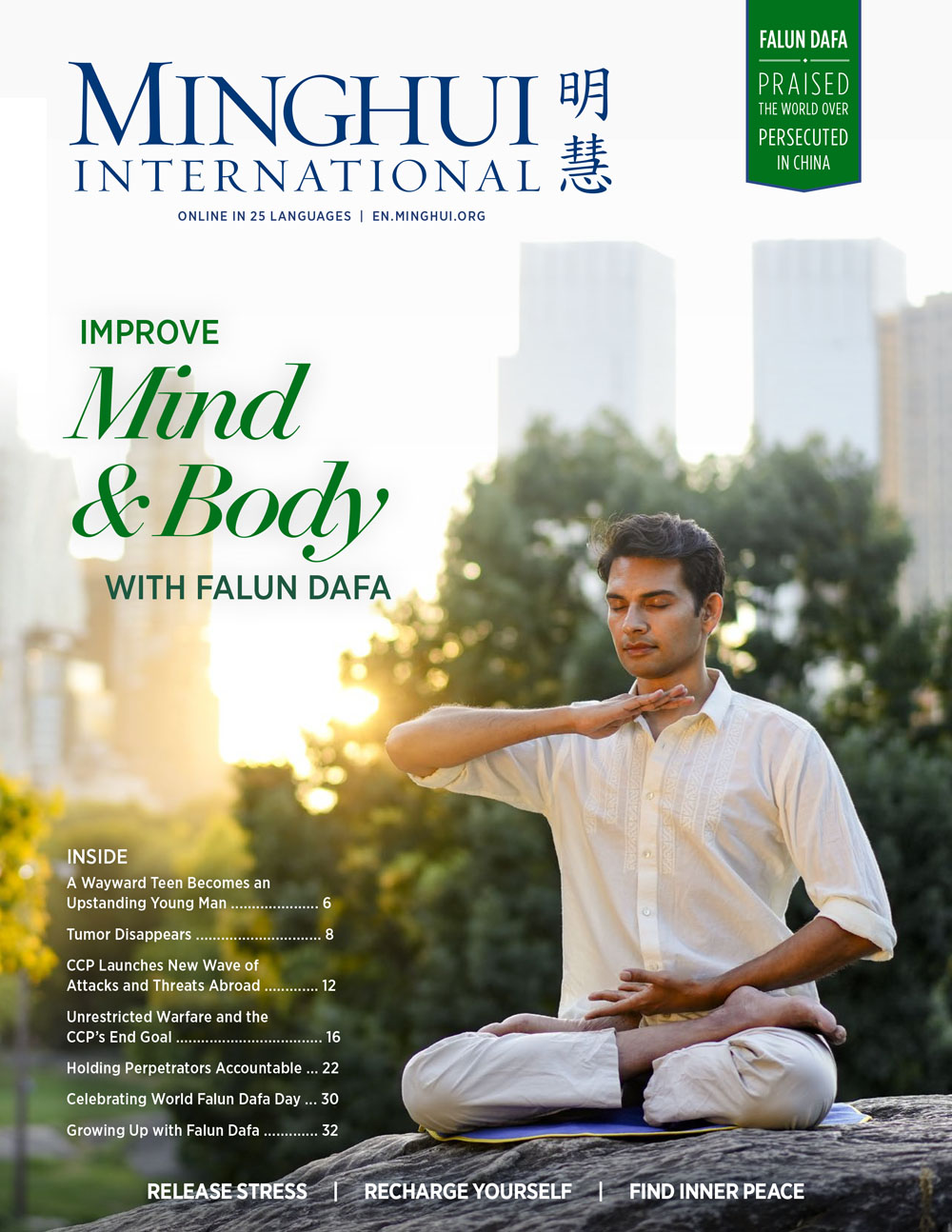(Minghui.org) Falun Dafa practitioners partnered with the Doctors Against Forced Organ Harvesting (DAFOH) India branch to screen the award-winning documentary Hard to Believe at IFIM Law College in the city of Bengaluru on September 16, 2025. This documentary exposes the Chinese Communist Party’s (CCP) organ transplant industry.
Vice Principal Shagufta Anjum, along with the faculty and students, attended the screening. They were stunned to learn about the wide-scale harvesting of organs from prisoners of faith in China, and expressed their deepest concerns. They called this crime nothing short of genocide against humanity. It was the first time they heard about these atrocities which are taking place in their neighboring country, China.
Almost all of the attendees signed the G7+7 Forced Organ Harvesting Petition, which calls on the G7+7 nations to end the CCP’s state-sanctioned crime of forced organ harvesting targeting people of faith. [Editors note: The G7 countries are the United States, Canada, France, Germany, Italy, Japan, and the United Kingdom. The +7 countries are Argentina, Australia, India, Israel, Mexico, South Korea, and Taiwan.]
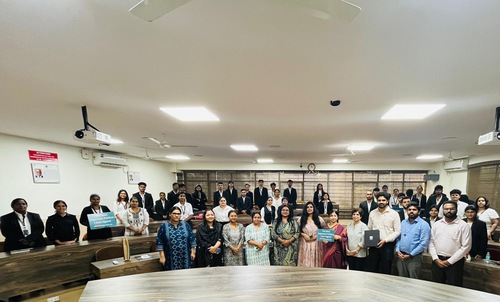 From right to left: DAFOH members, Dr. Giridhar, Jose Johny, and Vipin Mudegowder, Falun Dafa practitioner Chitra Devnani, and the vice principal of IFIM Law College Dr. Shagufta Anjum (5th from right) and her faculty.
From right to left: DAFOH members, Dr. Giridhar, Jose Johny, and Vipin Mudegowder, Falun Dafa practitioner Chitra Devnani, and the vice principal of IFIM Law College Dr. Shagufta Anjum (5th from right) and her faculty.
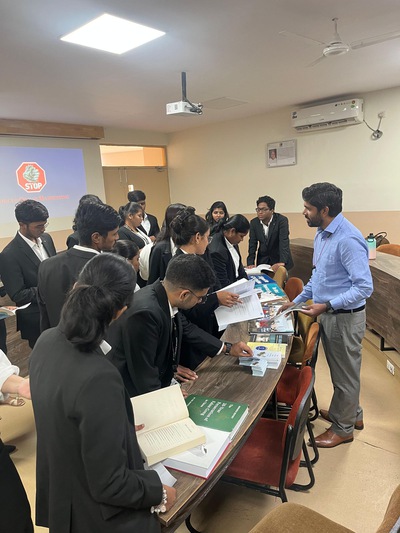 A Falun Dafa practitioner talked with students as they looked at the Minhgui special publications and the book How the Specter of Communism Is Ruling Our World.
A Falun Dafa practitioner talked with students as they looked at the Minhgui special publications and the book How the Specter of Communism Is Ruling Our World.
DAFOH Representative: We Must Be on the Right Side of History
Dr. Vipin Mudegowder, a pulmonologist who leads DAFOH India and practices Falun Dafa, said that creating awareness is the first step. “We believe that doctors, lawyers, and graduates have a moral and professional duty to take a stand, and by doing so they position themselves on the right side of history.”
The faculty members thanked DAFOH India for raising awareness and fostering dialogue on this urgent humanitarian concern, and for encouraging their students to pursue justice with compassion and courage.
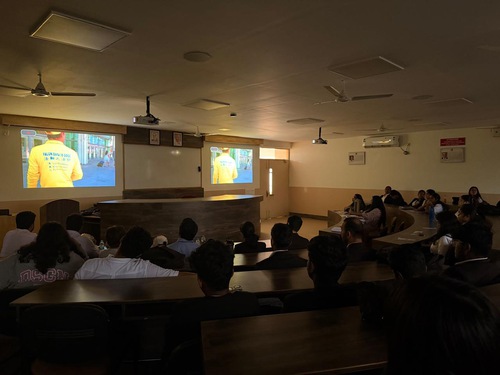 Students and faculty watched the Hard to Believe documentary at the IFIM Law College auditorium.
Students and faculty watched the Hard to Believe documentary at the IFIM Law College auditorium.
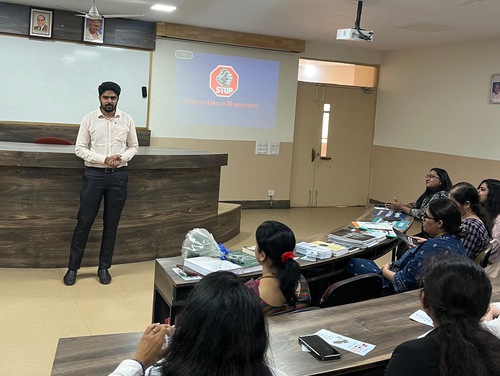 Dr. Vipin held a Q&A session after the screening.
Dr. Vipin held a Q&A session after the screening.
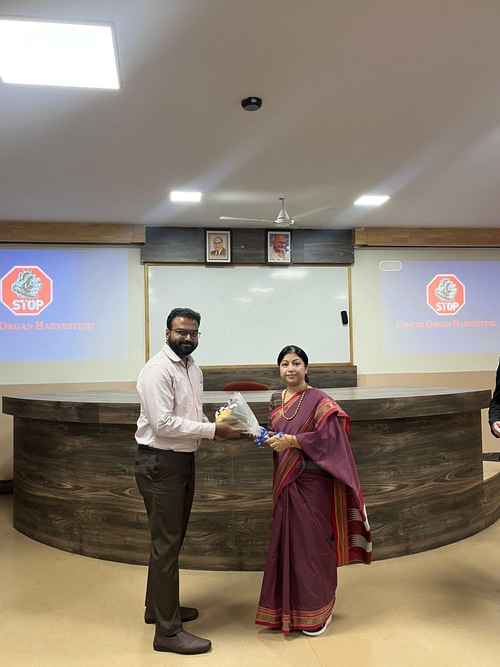 Dr. Giridhar with the vice principal of IFIM Law College, Dr. Shagufta Anjum
Dr. Giridhar with the vice principal of IFIM Law College, Dr. Shagufta Anjum
Assistant Professors: An Eye-Opening Documentary
Assistant professor Sharu Anna John said the session was impactful, and the documentary was an eye-opener.
“The session was deeply thought-provoking and succeeded in sensitizing our students to the grave human rights violations involved in forced organ harvesting. The documentary not only highlighted the moral, ethical, and legal dimensions of this global issue, but also encouraged students to critically engage and [pay attention to] our accountability, justice, and the role of international law,” said Professor John.
She found the discussion on possible solutions especially valuable, as it guided the students to, “Think beyond awareness and reflect on preventive and corrective measures within legal and policy frameworks.
“This experience has broadened their perspective on how law and advocacy can converge to safeguard human dignity.”
Another assistant professor, Pooja Ogale, also found the session engaging and informative. She said the session helped everyone present to, “Reflect deeply on the ethical, legal, and human rights dimensions of this heinous act.
“The session struck a balance between being informative and thought-provoking, leaving everyone with a strong sense of awareness and responsibility,” said Professor Ogale. She added that the event was made even more meaningful because of “the level of interest it generated among the students and the faculty,” and many expressed a genuine willingness to engage further and work alongside DAFOH in initiatives that raise awareness on such critical issues.
“We greatly appreciate this effort and would be delighted to collaborate again in the future, as such programs play a vital role in shaping empathetic, socially responsible, and globally aware individuals,” she said.
Law Student: Collective Action Against the Atrocities
The law students who attended the screening found the film insightful, and were stunned by the brutal crime of forced organ harvesting committed by the CCP against its own citizens.
Fourth-year student Mrinalini, who is interested in humanitarian law, said the session shed light on, “The grim reality of organ harvesting practices in China, and how they are carried out on a global scale.”
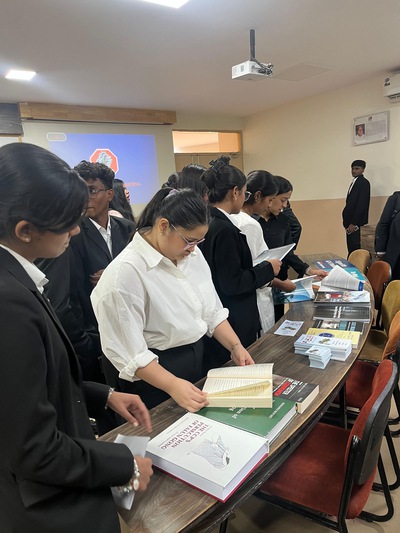 Mrinalini and her friends read reports and books about the persecution of Falun Dafa and forced organ harvesting.
Mrinalini and her friends read reports and books about the persecution of Falun Dafa and forced organ harvesting.
She said after watching the documentary that it explained, “how these inhumane activities are being carried out so subtly by China that most people around the world are not even aware of their extent and impact.” She found the discussions to be impactful and well-researched, which left her with a deeper sense of responsibility to spread awareness and advocate for stronger international measures against such practices.
“I deeply appreciate DAFOH for organizing this event that exposes the harsh realities often hidden from mainstream narratives. It was both informative and emotionally moving, and I believe such initiatives are crucial in mobilizing collective action against such atrocities,” Mrinalini said.
Harshi Patel, a second-year law student, found the documentary on forced organ harvesting to be “Extremely powerful.” She said that she heard about forced organ harvesting only in passing, but never truly understood how grave the situation is. “The way the documentary combined real-life accounts, expert insights, and statistics made the issue very clear and impactful,” she said.
“I was deeply moved by the human stories shown. It was disturbing yet necessary to see the reality of how organ harvesting strips individuals of their dignity and rights. The documentary did not just inform but also made me reflect on the moral and ethical responsibilities of society, governments, and even individuals in standing against such practices,” Harshi added.
Tanvi, a first-year student, said that the “emotional weight of the stories” struck her the most, leaving her to think about how often such issues “go unnoticed despite their scale.” “The documentary not only created awareness but also encouraged us to reflect on the ethical, legal, and humanitarian aspects surrounding organ trade. As a student, I could connect it with what we study about law, ethics, and justice. It made me realize the importance of global cooperation and stricter legal measures to address such crimes.”
Sameer Nadaf, also a first-year student, said it was an insightful experience, and the interaction with DAFOH members helped them understand how such large-scale human rights violations could have an impact on a global scale.
Law Students Help Connect DAFOH and Organize Event
This event was made possible by IFIM Law College students. Tarushi Gupta, a second-year law student, and her friends learned about forced organ harvesting at the 2025 flower show at Lal Bagh in Bengaluru. The students talked to Falun Dafa practitioners who were raising awareness of the ongoing persecution in China. She was shocked to learn that such a serious human rights violation has been taking place for two decades.
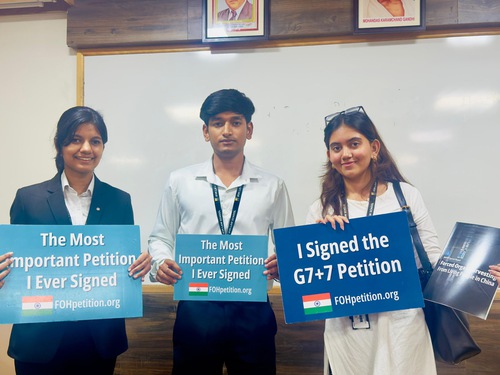 Law students signed the G7+7 Forced Organ Harvesting petition.
Law students signed the G7+7 Forced Organ Harvesting petition.
Tarushi told practitioners that she wished to hold an event on her campus to tell people about the persecution. She connected the DAFOH India team, Falun Dafa practitioners, and assistant professor Sharu, and the screening was planned.
Tarushi expressed her heartfelt thanks to DAFOH for showing the documentary and sharing books on the issue of forced organ harvesting. She said the session was informative and helped them understand the seriousness of forced organ harvesting and the importance of global awareness.
Copyright © 1999-2025 Minghui.org. All rights reserved.
Category: Organ Harvesting






